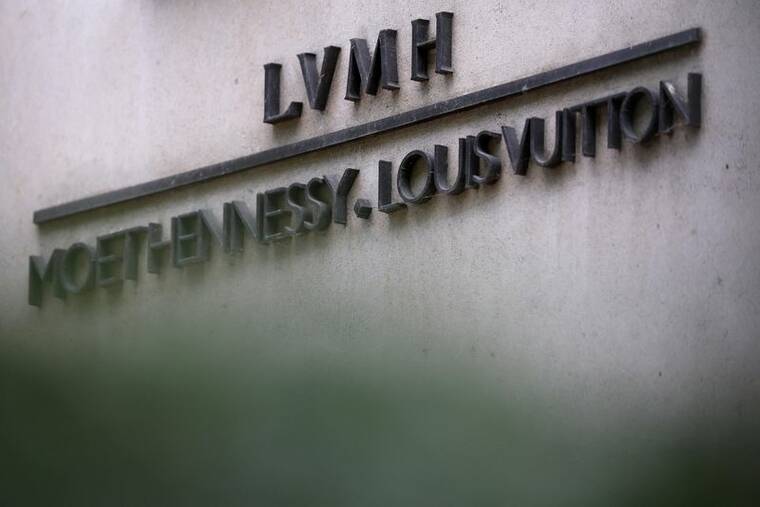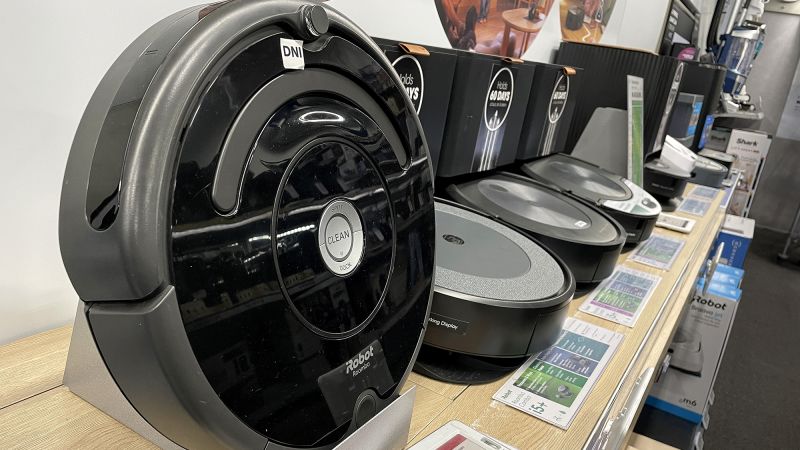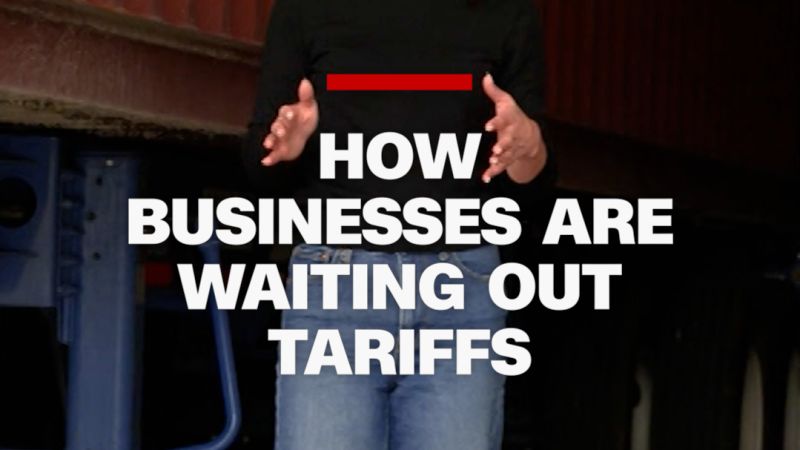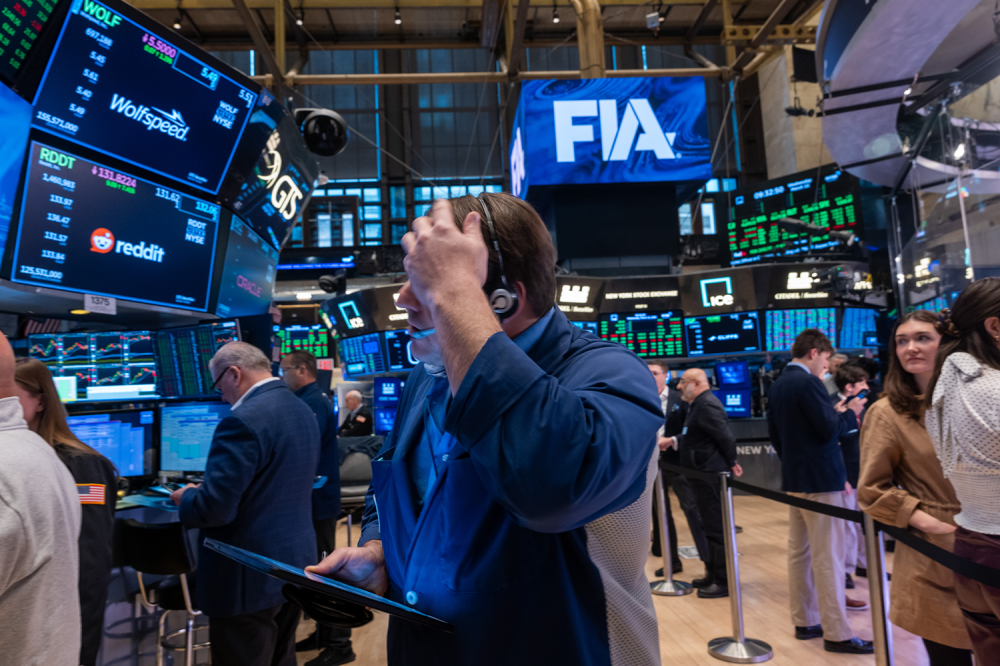Luxury Giant LVMH Stumbles: Q1 Performance Falls Short of Expectations
Business
2025-04-14 18:00:00Content

LVMH, the global luxury powerhouse, revealed today that its first-quarter sales experienced a notable 3% decline, falling short of market expectations. The report underscores a broader trend of cautious consumer spending in the luxury sector, reflecting the current economic uncertainty.
The luxury giant's performance highlights the challenges facing high-end retailers as shoppers become increasingly selective with their discretionary purchases. Economic headwinds and shifting consumer sentiment have prompted a more measured approach to luxury spending, impacting premium brands across the market.
This downturn signals a potential cooling in the luxury goods market, with consumers demonstrating heightened price sensitivity and a more strategic approach to luxury acquisitions. LVMH's results serve as a bellwether for the broader luxury industry, suggesting a period of recalibration and strategic adaptation may be on the horizon.
Luxury Market Trembles: LVMH's Q1 Performance Signals Global Economic Uncertainty
In the high-stakes world of luxury commerce, even titans like LVMH are not immune to the rippling economic challenges that continue to reshape global consumer behavior. The luxury market, once considered recession-resistant, now finds itself navigating treacherous financial waters where consumer confidence and spending patterns are increasingly unpredictable.Luxury Consumption: A Delicate Economic Barometer
The Shifting Landscape of Luxury Consumption
The contemporary luxury market represents far more than mere product sales; it's a complex ecosystem reflecting broader economic sentiments. LVMH's recent quarterly performance unveils a nuanced narrative about consumer psychology, economic constraints, and the evolving definition of luxury in an increasingly volatile global marketplace. Sophisticated consumers are no longer making impulse purchases but carefully evaluating every expenditure, signaling a profound transformation in purchasing behaviors. Luxury brands must now recalibrate their strategies, understanding that traditional marketing approaches no longer guarantee consumer engagement. The pandemic fundamentally altered purchasing patterns, creating a more discerning, value-conscious consumer base that demands authenticity, sustainability, and meaningful brand narratives.Economic Indicators and Consumer Sentiment
The 3% sales decline experienced by LVMH is not merely a statistical anomaly but a significant indicator of broader economic trends. Global economic uncertainties, including geopolitical tensions, inflationary pressures, and ongoing supply chain disruptions, are directly impacting consumer spending patterns in the luxury sector. Economists and market analysts are closely examining these trends, recognizing that luxury brands serve as sophisticated economic barometers. The reduced willingness of consumers to invest in high-end products suggests a more profound economic hesitation, reflecting deeper concerns about financial stability and future economic prospects.Strategic Adaptations in Luxury Retail
Luxury brands like LVMH are now compelled to reimagine their engagement strategies. Digital transformation, personalized experiences, and innovative marketing approaches have become critical survival mechanisms. The traditional brick-and-mortar model is giving way to immersive, technology-driven consumer interactions that transcend conventional retail boundaries. Brands must now create compelling narratives that resonate with increasingly sophisticated global consumers. This requires a delicate balance between maintaining brand exclusivity and demonstrating genuine understanding of evolving consumer values and expectations.Global Market Dynamics and Regional Variations
The luxury market's performance varies dramatically across different geographical regions. While some markets experience significant contractions, others demonstrate remarkable resilience. Understanding these nuanced regional dynamics becomes crucial for luxury brands seeking sustainable growth strategies. Emerging markets, particularly in Asia, continue to present significant opportunities despite global economic challenges. Luxury brands must develop hyper-localized strategies that acknowledge cultural nuances and regional economic specificities.Technological Innovation and Future Outlook
Technology is rapidly transforming the luxury landscape. Artificial intelligence, augmented reality, and sophisticated data analytics are enabling brands to create more personalized, immersive consumer experiences. These technological interventions are not just marketing tools but fundamental reimaginings of how luxury is perceived, consumed, and experienced. The future of luxury consumption will be characterized by increased transparency, sustainability, and meaningful brand storytelling. Consumers are demanding more than just products; they seek authentic experiences that align with their personal values and global perspectives.RELATED NEWS
Business

Tariff Tsunami: How China Trade War Threatens a Minnesota Entrepreneur's Lifeline
2025-04-10 01:19:28
Business

Roomba's Future in Peril: iRobot Warns of Survival Challenges Amid Market Turbulence
2025-03-12 13:30:52






